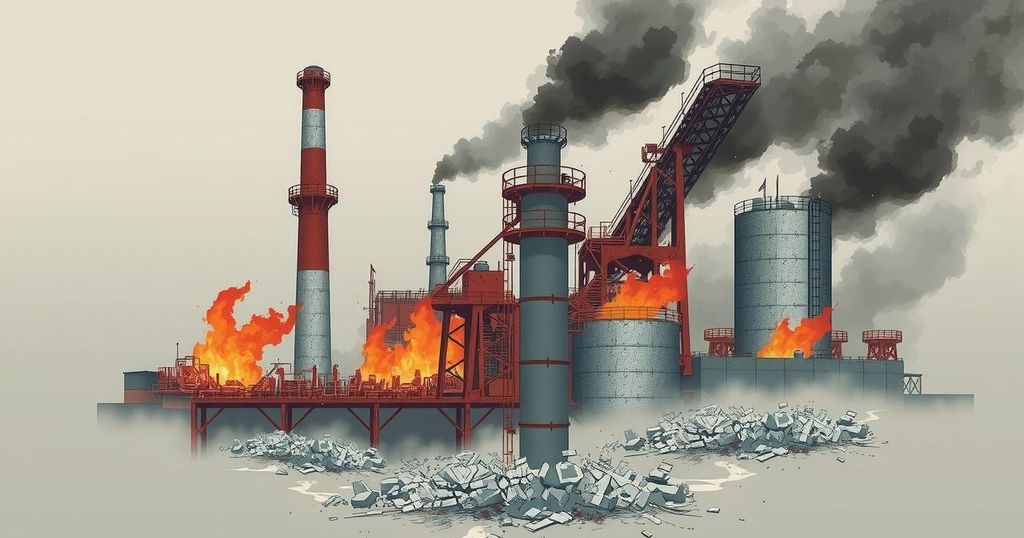The Al-Jaili Oil Refinery’s Destruction and Its Consequences for Sudan
The Al-Jaili oil refinery in Sudan has been severely damaged due to nearly two years of war, resulting in halted operations and forced fuel imports. Captured by paramilitary forces in April 2023 and reclaimed by the regular army in January 2024, the facility’s reconstruction is projected to cost $1.3 billion, requiring significant time and financing.
The Al-Jaili oil refinery in Sudan, once a key energy provider, has suffered extensive damage due to nearly two years of warfare. Located approximately 70 kilometers north of Khartoum, the facility was captured by the paramilitary Rapid Support Forces (RSF) shortly after hostilities began in April 2023. Continuous artillery exchanges led to its total shutdown in July 2023, and although the regular army regained control in January, operations remain suspended amid infrastructure devastation.
The refinery, which previously processed around 100,000 barrels of crude oil daily, accounted for approximately half of Sudan’s fuel supply, including petrol, diesel, and cooking gas. Economist Khalid el-Tigani emphasized the refinery’s importance, stating, “The refinery was crucial for Sudan, covering 50 percent of the country’s petrol needs…” Following its closure, Sudan found itself reliant on fuel imports, further exacerbated by a critical shortage of hard currency amidst an ongoing conflict that has displaced over 12 million citizens.
During the January recapture, a massive fire destroyed what remained of the facility. The RSF alleged that the fire was caused by government attacks, while the regular army accused the RSF of attempting to sabotage the infrastructure. An AFP report captured the devastation, revealing that burned vehicles lined the access routes and the control rooms exhibited extensive ruin, with remnants of firefighting efforts still visible.
Constructed in two phases at a cost of $2.7 billion, the refinery requires at least $1.3 billion to restore operations. Sirajuddin Muhammad, the deputy director, indicated that delays in repairs would be influenced by the need to procure original components. An anonymous refinery engineer highlighted that securing funding would not expedite repairs, estimating a minimum of three years before the refinery could return to operational status.
Historically, the discovery of oil reserves transformed Sudan’s economy; however, the secession of South Sudan in 2011 severely reduced oil production capabilities, as it retained a significant portion of the nation’s output. Although South Sudan relies on Sudan’s pipelines for oil exports, recent conflicts have jeopardized this trade, leading to halts in exports and affecting both nations’ economies.
The Al-Jaili refinery’s catastrophic decline underscores the severe impact of prolonged conflict on Sudan’s energy infrastructure and economy. Regaining operational capability will require substantial financial investments and time, amidst an already precarious national situation characterized by difficulty securing foreign currency and managing humanitarian crises. Overall, the fate of the refinery and Sudan’s energy independence remains uncertain, with broader implications for regional stability.
Original Source: www.youralaskalink.com




Post Comment